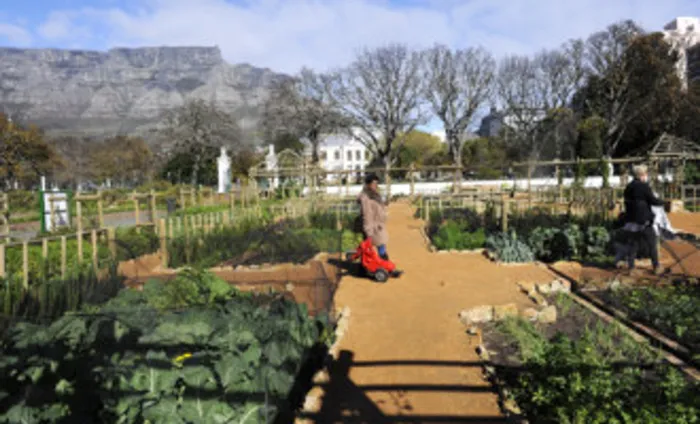Garden a heritage trove

Cape Town 150724. Cape Town Garden is a popular sport to rekax both for locals and internationals. Picture Cindy waxa.Reporter Helen/Argus Cape Town 150724. Cape Town Garden is a popular sport to rekax both for locals and internationals. Picture Cindy waxa.Reporter Helen/Argus
Cape Town - The Company’s Garden in the heart of Cape Town is filled with history, surrounded by architectural gems and has a long list of attractions. But ask anyone – whether a tourist, tour guide or toddler – what they love most about the garden and the answer is invariably “feeding the squirrels”.
Although to be fair, there are those who detest them. One British tourist described them on TripAdvisor as an “epidemic”.
The grey squirrels, which are so tame they eat nuts out of people’s hands, were introduced by Cecil John Rhodes, who has had his own bit of bad press and whose statue still stands tall in the garden.
Some years back the Company’s Garden was a bit of a hot spot for thieves and pickpockets and it was almost impossible to relax without being harassed for money.
But these days, apart from the tourists, there are also students, class loads of pupils, mothers and babies, office workers and the homeless, who usually park off on the benches.
Security is far more visible. There are eight CCTV cameras linked to Cyclops, the South African Police Service CCTV Camera Surveillance Division and private security guards patrol 24 hours a day.
Rory Phelan, the manager of the Company’s Garden for the past eight years, said the garden was attracting more people by hosting events such as World Library Day, storytelling for children and lots of weddings.
“And the more people who use the garden, the safer it is.”
Zukile Stoto has been a security guard with the CCID for two years. He said people were usually well behaved.
“Some take a chance but there is a lot of security around and we are in touch with each other via radio.”
Phelan said having free Wi-Fi had also become an attraction for visitors.
Damelin College students Vineto Cloete and Grant McDillion said they had been using the free service for about six months.
“It’s quite useful,” Cloete said. “We come here most days.”
Marguerite Kimberley, whose two-year-old son Nicholas was whizzing round on a scooter, said the new restaurant really added to the garden.
It was opened last year by the Madame Zingara group, replacing the somewhat rundown tearoom.
Outside the restaurant are several weaver-bird style nests hanging from the trees which both children and adults are drawn to.
There is also a giant chess set.
Being a dynamic space, there are continual plans for developing the garden while conserving its heritage.
Phelan said there were thoughts about possibly opening a farmer’s market in the Paddocks area, similar to the one operated by the Oranjezicht city farm. The Paddocks, with lawns adjacent to the National Art Gallery, was once used for government horses, hence its name.
The rose garden is also currently being re-landscaped as many of the existing roses are “too old to give a good show”.
Phelan said there were plans to install a gazebo in the centre of the rose garden for more wedding photo opportunities.
Projects being planned also include the re-landscaping of the plant beds along Government Avenue from Wale Street to the main garden entrance to develop a more colourful and “gardenesque” experience of the entrance to the oldest garden in South Africa.
There have also been Urban Vegetable Gardening day courses offered by Food and Trees for Africa in partnership with the Company’s Garden.
The garden was started in 1652 by Dutch settlers to provide fresh produce for ships sailing round the Cape of Good Hope. It still has the oldest cultivated pear tree in the country, a Delville Wood Memorial Garden designed in 1929 by Sir Herbert Baker, a Japanese theme garden and a koi pond whose inhabitants appear to have passed on.
Roanne Beukes, from Monte Vista, was visiting with grandchildren Millie, five, and Katelyn Beukes, three, who live in the Bahamas. “The children love the animals and it’s the cheapest most enjoyable outing.”
Italian tourist Gabriele Lazzarone, with his wife and two children, loved the squirrels and birds but also the historical buildings.
Helen Bamford, Cape Argus